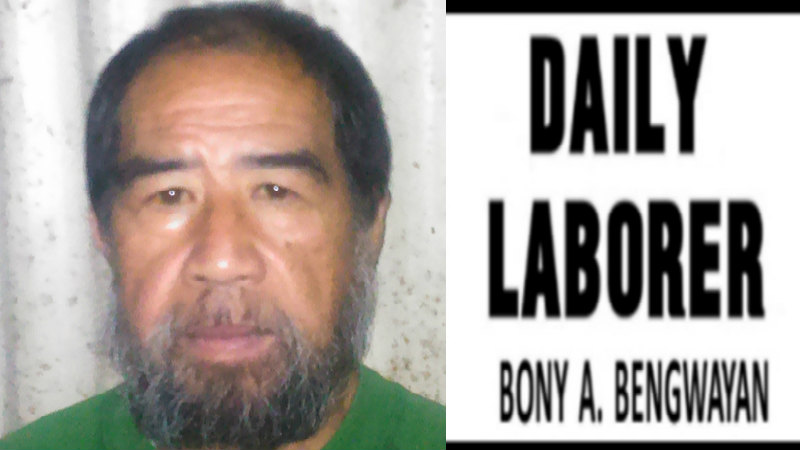Department of Agriculture’s (DA) recent step-up to protect Cordilleran heritage rice varieties brings to the fore a hidden threat of modern mercenaries lurking at the country sides to plunder plants and/or traditional knowledge of highland indigenous people.
Paid mercenaries of unscrupulous business firms, these modern pirates come not in the profile of swashbuckling pirates of yore brandishing swords and guns in their belts, but with acquired education and willing to dicker their diplomas to highest bidder by doing a refined art of theft.
Wordsmiths brand them bio prospectors; what they do is bio prospecting, or search of plant or animal species that can be exploited for commercial gain. Such act is termed bio piracy.
Nowadays, bio prospectors, hidden among the population, can be your everyday botanist, agriculturist, biologist or medical doctor, discreetly employed by pharmaceutical industry to seek biological information on DNA – that complex molecule containing all the information necessary to build and maintain an organism.
All living things possess DNA within their cells. DNA stealers use it to clone an original living form.
Bio piracy is an act of illegally getting plants, animals, genes, traditional knowledge and other biological materials from an indigenous community with end goal of gaining profit from these without any thought giving compensation to where these materials were taken.
Said act is further complicated by another act of the taker of said materials by claiming sole right to said materials, called patenting.
Bio piracy was first coined by Canada-based civil society organization, Rural Advancement Foundation International.
It was called so due to growing frustrations about appropriation and monopolization of long-held medicinal and agricultural knowledge about nature, as well as the related physical resources that include the plants, animals and their components.
For evidence of the value of cultural knowledge, we need only to reflect why DA’s move is apparent, to protect heritage rice varieties from any attempt to appropriate these for profit.
Many indigenous communities (61% located in Mindanao, 33% in Northern Luzon) have long existed even during the dawn of modern medicine, these groups have been making use of orally passed tradition and knowledge about medicinal plants and processes.
On the other hand, it has created commercial opportunities for private firms like pharmaceutical and research business to dig deep into this indigenous knowledge.
Despite rights encapsulated to indigenous people in the 1997 Indigenous people’s Rights Act, these businesses have still skirted the Act and abused said communities, wrenching from these people without their consent, materials and knowledge.
One popular example on bio piracy occurred in the Cordillera region in 2007 when species the Philippine Yew Tree, scientifically called Taxus Matrana, were discovered by Department of Environment and Natural Resources (DENR-CAR) forest rangers uprooted and stolen at Mount Pulag National Park where it’s known to grow only.
Further sleuthing by government authorities later traced the stolen Philippine Yew Trees in the United States where there, it was patented for its cancer-curing property, called Taxol.
Philippines has Republic Act 9147 (Wildlife Resources Conservation and Protection Act), to confront the problem on bio piracy, aside from being a member of the Nagoya Protocol.
As member, Philippines is obliged to provide guidelines on regulating access to genetic resources. In like manner, the Protocol, mandating Philippines and other countries that acceded to it, states, “To ensure indigenous and local communities associated with genetic resources will benefit from the use of their knowledge, innovations and practices.”
In order to monitor that obligation, the Philippines has created and maintains the Access and Benefit-Sharing Clearing House, through the Philippines Clearing House Mechanism of the Convention of Biological Diversity.
It serves as the government’s Philippine Biodiversity Information Facility, a national data sharing network of 31 institutional partners from academia, conservation, research and museums that generate and hold Philippine biodiversity data.
It’s instrumental in the registry of about 420 varieties of heritage rice found and grown only in upland Cordillera, that have landed profitable share in foreign markets. Some examples of these varieties include “Tinawon,” “Ulikan” and “Unoy,” “Mina-angan,” “Hungduan,” Jekot,” among others, grown at Ifugao Province’s Banaue Rice Terraces.
While taste for these varieties had grown exponentially, it opened avenues for “enterprising” businesses to possibly clone these for production outside from its original source and later claim these as their own.
Hence, bio piracy discourse is generated to illustrate the more recent technological and institutional changes (like Cordilleran rice varieties finding niche in international market) that can encourage new iniquities and compound old ones (like the Philippine Yew Tree stolen years ago and still unresolved).
In the context of what is now called “new global intellectual property rules,” bio piracy is now being forcefully wielded as a counter to what unscrupulous businesses claim as their “intellectual property,” which is definitely not in the first place.
To help blunt bio piracy in Cordillera and elsewhere in the country where indigenous people reside, there’s the Intellectual Property Code of the Philippines, Indigenous People’s Rights Act or IPRA, RA 9147, (Wildlife Act), RA 8423 (Traditional and Alternative Medicine Act) – which centers on the right of indigenous people to a share of commercialization of their traditional medicine knowledge.
Bolstering the above are RA 9710 (Magna Carta of Women) by protecting rights of indigenous women regarding their indigenous knowledge and practices and, RA10055 (Technology Transfer Act), requiring research and development institutions to divulge any biodiversity and genetic resource for all intellectual property protection.
Such measures are hoped to deter bio pirates possessed with the intellect of siphoning indigenous plant/animal or traditional knowledge.
Still talking about intellect and piracy of knowledge, Ah Kong remembers the time he was in Grade 1 and was caught by his teacher cheating by copying answers of test of his seatmate and his teacher said, “Ayna, Bony, ammom nga cheating is not good!”
Ah answered, saying, “Ma’am, Ma’am, seeking help is not a sign of ignorance, but an intellectual act that allows people to admit that some situations are not meant to be handled alone.”
For his misconduct, Ah was sent out of the classroom for his intellectually bad attitude.
And let’s hear about Seline Amaris, parent and teacher who hails from Visayas who wrote an open letter to her children’s future teachers, that her children will have their intellect right.
She wrote (with minimal editing): “Dear Teacher, if my child was cheating and you want to throw my child’s examination papers to the waste basket, go ahead and do it. I don’t want my child growing up and thinking it’s okay to lie and cheat.”
“If my child deserves to fail, then fail my child. I don’t want my child to progress in school with fake grades.”
“Challenge my child with the reality that my child needs to do better.”
“You no longer want to accept my child’s project because it’s many days late. Then reject it. I want my child to value time and deadlines.”
“You feel like confiscating my child’s phone because my child was caught playing online games in class? Confiscate that phone. I want my child to know the right place and time for gadgets.”
“You found my child was cutting classes? Go ahead and reprimand my child. Tell my child what’s needed to be heard. let my child pay the consequences of cutting classes as I didn’t send my child to school to cut classes.”
“My child needs to value your worth as a teacher and as a second parent.”
Another teacher wrote: “Dear teachers: Let’s be careful to parents who don’t even know how to discipline their children. Child Protection Policy maybe our downfall of inculcating values to this generation, but it is part of the system. Let’s do our job, that is to teach lessons. Let parents handle the values education since they are much capable of it. Parents will always be the reflection of a child’s personality. We are the face of the wrong system.”
“So never go against it or else you will lose your job. Putting a meal on a table is much more important than to discipline a child and lose your dignity, reputation and a job.”
To parents: “If you observe that my class is unruly, then I do nothing. It means I am tired and protecting myself from you. Remember, to discipline your children is a crime and I don’t want to lose my job. We study and get a license for years. We don’t want our hard work to be wasted. Let’s be fair to the law and our rights. WE WILL NOT BE PUNISHED IF WE PRODUCED CHILDREN WITHOUT VALUES.”-Bony A. Bengwayan














